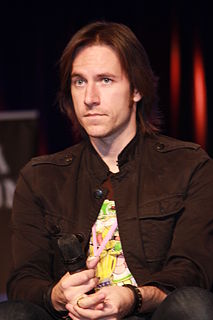A Quote by Astra Taylor
It's the same thing in a way with privacy. You can say "I'm not doing anything wrong, therefore this doesn't concern me," but what does it mean about our society if we're all being watched and recorded? The personal experience - negotiating this as individuals - doesn't describe the social reality and the broader social costs.
Related Quotes
I believe I have demonstrated that the voters are characteristically ill-informed when voting on reducing social costs. Furthermore, their primary concern is with wealth transferred to themselves, rather than with social cost efficiency. Logically, this would mean that democratic government would be inefficient in reducing social costs.
In its pursuit of justice for a segment of society, in disregard of the consequences for society as a whole, what is called 'social justice' might more accurately be called anti-social justice, since what consistently gets ignored or dismissed are precisely the costs to society. Such a conception of justice seeks to correct, not only biased or discriminatory acts by individuals or by social institutions, but unmerited disadvantages in general, from whatever source they may arise.
Now, I don't mean to say that being wrong is the same thing as being creative. What we do know is, if you're not prepared to be wrong, you'll never come up with anything original. If you're not prepared to be wrong. And by the time they get to be adults, most kids have lost that capacity. They have become frightened of being wrong. And we run our companies like this, by the way, we stigmatize mistakes. And we're now running national education systems where mistakes are the worst thing you can make.
It is a fact that, in the West, we live in a capitalist society, but that does not mean that we cannot be guided by the idea of a social conscience in our work. Yes, fashion design requires consumers to consume, but we can do our bit for society by running our companies in a socially responsible way, and by creating products that promote respect for social and environmental issues. There is also the possibility for power and influence to be a force for change.
More brands are waking up to their social responsibility and doing good work through cause marketing campaigns. Yet too many still go about it the wrong way. I mean 'wrong' in two senses. Firstly, they are marketing ineffectively, and secondly, as a consequence their positive social impact is not maximized.
I have lived in the pursuit of a vision, both personal and social. Personal: to care for what is noble, for what is beautiful, for what is gentle; to allow moments of insight to give wisdom at more mundane times. Social: to see in imagination the society that is to be created, where individuals grow freely, and where hate and greed and envy die because there is nothing to nourish them. These things I believe, and the world, for all its horrors, has left me unshaken.
For a lot of people, 'Dungeons & Dragons' has been a hard thing to describe. I can't tell you how many social environments I've been in where I say, 'I play 'D&D,'' and a bunch of normies will be like, 'How does the game even work? What's that like?' I didn't have anything to really describe it that didn't make me sound like a crazy person.
Until educators, individuals, artists, intellectuals and various social movements address how the metaphysics of casino capitalism, war and violence have taken hold on American society (and in other parts of the world) along with the savage social costs they have enacted, the forms of social, political, and economic violence that young people are protesting against, as well as the violence waged in response to their protests, will become impossible to recognize and act on.
Before the Second World War, I believed in the perfectability of social man; that a correct structure of society produced goodwill; and that, therefore, you could remove all social ills by a reorganisation of society. It is possible that I believe something of the same again; but after the war, I did not because I was unable to.





































